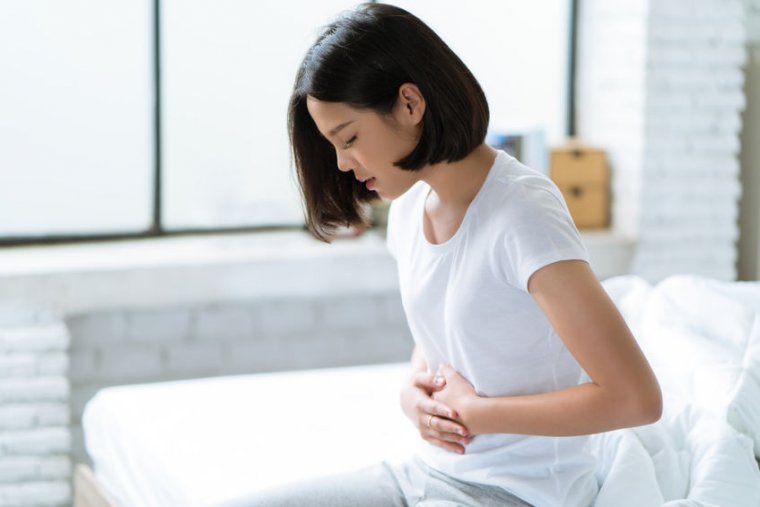
Pain Before, During and After Intercourse: It Could Be Dyspareunia Dyspareunia, is defined as recurrent and persistent genital pain that occurs before, during or after intercourse. This pain can be sharp, dull, brief or long lasting. Diagnosis typically occures when it is determined that the pain is not caused by anatomical, physiological or pharmaceutical reasons. If the above symptoms are something that you are experiencing, then you are not alone. Up to sixty percent of all women will experience painful intercourse at some point in their life. If you are worried, you should make an appointment with your gynecologist to make sure that nothing is wrong.
Causes of dyspareunia:
- Inadequate lubrication
- Inflammation
- Infection: such as bacterial or yeast infections of PID (Pelvic inflammatory disease)
- Smoking
- Tipped or reverted uterus: pain can occur when the tip of the penis hits the cervix and / or the tip of the uterus
- Endometriosis
- Fibroids
- Pelvic floor myalgia: in other words your pelvic floor has muscle spasms.
- Vaginismus
- Vulvar Vestibulitis
- Vulvodynia: the vulva is super sensitive to touch. Research by Berman & Berman (2000) indicates that avoiding chocolate, citrus fruits, nuts and alcoholic beverages decreases vulvodynia.
- Side effects of medications: many medications for used to treat high blood pressure, allergies and depression may also cause you to experience a decrease in lubrication.
- Illnesses
- Physical problems: sometimes having had a baby can change the anatomy of a woman, scar tissue from surgeries, or simply you could be born that way.
- Emotional issues: for example, you were sexually abused as a child, you and your partner have been fighting a lot or you have difficulty explaining to your partner what turns you on in bed.
Does your partner know what you are experiencing? If not, share with your partner the answers to the following questions:
- Have you always had painful intercourse? Or has sex only recently become painful? Does the pain change depending upon where you are in your menstrual cycle? Is it possible that the reason you are having pain during intercourse is that you are rarely stimulated enough prior to penetration?
- Are you experiencing any other symptoms?
- Do you always experience pain during intercourse? Or is it dependent upon the situation? How is having painful intercourse effecting your ability to be intimate with your partner?
- If you avoid intercourse is your sexual experience still pleasurable? What is your natural sex drive? How arousable are you? Do you orgasm? Are you lubricating during sex?
- How intense is the pain?
- When do you feel pain?
- Where does it hurt?
Sharing the above information will help your partner gain a better understanding of what you are experiencing. Now the two of you will be in a better position to brainstorm together ways to minimize the pain that you experience. Ideas include, but are not limited to
- Increasing foreplay
- Increasing emotional intimacy
- Sensate focus exercises – to help the two of you learn how to please one another more effectively
- The use of lubricant (e.g. KY Jelly or Astroglide) during intercourse
- Vaginal massage prior to intercourse
- Relaxing your vaginal muscles, including, but not limited to deep breathing
- Outer-course (kissing, manual stimulation, oral sex, sexy stories, etc )
- Self hypnosis
- Meeting with a sex therapist
